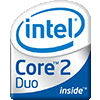
Intel Core i5-3210M Benchmark, test e specifiche
Ultimo aggiornamento:
Intel Core i5-3210M è stato rilasciato in Q2/2012 e ha 2 core. Il processore può elaborare 4 thread contemporaneamente e utilizza una scheda madre con il socket BGA 1023. Nel benchmark Geekbench 5, Intel Core i5-3210M ha ottenuto un risultato di 645 punti (single-core) o 1.366 punti (multi -nucleo).

| Cognome: | Intel Core i5-3210M |
|---|---|
| Famiglia: | Intel Core i5 (331) |
| Gruppo CPU: | Intel Core i 3000M (29) |
| Architettura : | Ivy Bridge H |
| Segmento: | Mobile |
| Generazione: | 3 |
| Predecessore: | -- |
| Successore: | Intel Core i5-4210M |
CPU Cores e frequenza di base
Il Intel Core i5-3210M ha 2 core. La frequenza di clock di Intel Core i5-3210M è 2,50 GHz (3,10 GHz). È possibile effettuare una valutazione iniziale delle prestazioni utilizzando il numero di core della CPU.
| CPU Cores / Threads: | 2 / 4 |
|---|---|
| Architettura principale: | normal |
| Cores: | 2x |
| Hyperthreading / SMT: | Si |
|---|---|
| Overclocking: | No |
| Frequenza: | 2,50 GHz |
| Turbo Frequenza (1 Core ): | 3,10 GHz |
| Turbo Frequenza (2 Cores): | 3,10 GHz |
Grafica interna
Intel Core i5-3210M ha una grafica integrata che il sistema può utilizzare per riprodurre in modo efficiente i video, ad esempio. Intel Core i5-3210M ha Intel HD Graphics 4000 installato, che ha 16 multiprocessori di streaming (128 shader).
| nome GPU: | Intel HD Graphics 4000 |
|---|---|
| Frequenza GPU : | 0,65 GHz |
| GPU (Turbo ): | 1,10 GHz |
| Unità di esecuzione: | 16 |
| Shader: | 128 |
| Hardware Raytracing: | No |
| Data di lancio : | Q1/2011 |
| Max. visualizzazioni: | 3 |
|---|---|
| Generation: | 7 |
| Direct X: | 11.0 |
| Tecnologia : | 22 nm |
| Max. GPU Memoria: | 2 GB |
| Frame Generation: | No |
Hardware codec support
I processori con grafica integrata possono elaborare più velocemente utilizzando questi codec video. Il supporto per i codec moderni può aumentare significativamente l'efficienza del sistema durante la riproduzione video.
| h265 / HEVC (8 bit): | No |
|---|---|
| h265 / HEVC (10 bit): | No |
| h264: | Decodificare / Codificare |
| VP8: | No |
| VP9: | No |
| AV1: | No |
|---|---|
| AVC: | Decodificare / Codificare |
| VC-1: | Decodificare |
| JPEG: | Decodificare |
Memoria & PCIeIntel Core i5-3210M supporta un massimo di 32 GB memoria. A seconda della scheda madre, il processore può utilizzare un massimo di 2 (Dual Channel) canali di memoria. Ciò si traduce in una larghezza di banda massima della memoria principale di 25,6 GB/s. |
|
| Tipo di memoria : | Banda di memoria: |
|---|---|
| DDR3-1600 | 25,6 GB/s |
| Max. Memoria: | 32 GB |
| Canali di memoria : | 2 (Dual Channel) |
| ECC: | No |
| PCIe: | 3.0 x 16 |
| PCIe Larghezza di banda: | 15,8 GB/s |
Gestione termicaIntel Core i5-3210M ha un TDP di 35 W. Sulla base del TDP, il produttore del sistema può e deve adattare la soluzione di raffreddamento al processore. |
|
|---|---|
| TDP (PL1 / PBP): | 35 W |
| TDP (PL2): | -- |
| TDP up: | -- |
| TDP down: | -- |
| Tjunction max.: | -- |
Dettagli tecnici
La produzione moderna riduce il calore disperso di un processore e ne aumenta l'efficienza. Intel Core i5-3210M è realizzato in 22 nm e ha 3,00 MB cache.
| Tecnologia : | 22 nm |
|---|---|
| Design a chip: | Monolitico |
| Presa: | BGA 1023 |
| L2-Cache: | -- |
| L3-Cache: | 3,00 MB |
| AES-NI: | Si |
| Sistemi operativi: | Windows 10, Linux |
| Virtualizzazione: | VT-x, VT-x EPT |
|---|---|
| Set di istruzioni (ISA): | x86-64 (64 bit) |
| Estensioni ISA: | SSE4.1, SSE4.2, AVX |
| Data di lancio : | Q2/2012 |
| Prezzo di rilascio: | -- |
| Numero di parte: | -- |
| Documenti: | Scheda tecnica |
Valuta questo processore
Risultati di benchmark

I risultati del benchmark per Intel Core i5-3210M sono stati attentamente controllati da noi. Pubblichiamo solo risultati di benchmark che sono stati creati da noi o che sono stati inviati da un visitatore e poi controllati da un membro del team. Tutti i risultati sono basati e rispettano le nostre linee guida di benchmark.
Schermate:
Schermate:
- Cinebench R23 (Dell Inspiron R17 5730)
- Cinebench R20 (Dell Inspiron R17 5730)
- Cinebench R15 (Dell Inspiron R17 5730)
- Cinebench R11.5 (Dell Inspiron R17 5730)
Cinebench R23 (Single-Core)
Cinebench R23 è il successore di Cinebench R20 ed è anch'esso basato su Cinema 4D. Cinema 4D è un software usato a livello mondiale per creare forme in 3D. Il test single-core utilizza solo un nucleo elaborativo della CPU. A tal fine, il numero di nuclei elaborativi o la capacità di hyperthreading non sono rilevanti.

|
Intel Core i5-2450M
2C 4T @ 3,10 GHz |
||

|
AMD FX-8350
8C 8T @ 4,20 GHz |
||

|
Qualcomm Snapdragon 8cx Gen 3
8C 8T @ 3,00 GHz |
||
|
|
Intel Core i5-3210M
2C 4T @ 3,10 GHz |
||

|
Intel Xeon X3470
4C 8T @ 3,60 GHz |
||

|
Intel Pentium G2020
2C 2T @ 2,90 GHz |
||

|
Intel Core i3-8130U
2C 4T @ 3,40 GHz |
||
Cinebench R23 (Multi-Core)
Cinebench R23 è il successore di Cinebench R20 ed è anch'esso basato su Cinema 4D. Cinema 4D è un software usato a livello mondiale per creare forme in 3D. Il test multi-core coinvolge tutti i nuclei elaborativi della CPU e si avvale del hyperthreading.

|
Intel Core M-5Y71
2C 4T @ 2,20 GHz |
||

|
Intel Celeron J4105
4C 4T @ 2,40 GHz |
||

|
AMD Athlon II X4 640
4C 4T @ 3,00 GHz |
||
|
|
Intel Core i5-3210M
2C 4T @ 3,10 GHz |
||

|
AMD Athlon II X4 635
4C 4T @ 2,90 GHz |
||

|
Intel Processor N200
4C 4T @ 3,40 GHz |
||

|
Intel Core i7-7Y75
2C 4T @ 2,80 GHz |
||
Geekbench 5, 64bit (Single-Core)
Geekbench 5 è un benchmark multi-piattaforma che usa in modo intensivo la memoria del sistema.Il test single-core utilizza solo un nucleo elaborativo della CPU. A tal fine, il numero di nuclei elaborativi o la capacità di hyperthreading non sono rilevanti.

|
Intel Xeon E7-4880 v2
15C 30T @ 3,10 GHz |
||

|
MediaTek Kompanio 820
8C 8T @ 2,20 GHz |
||

|
MediaTek Dimensity 820
8C 8T @ 2,60 GHz |
||
|
|
Intel Core i5-3210M
2C 4T @ 3,10 GHz |
||

|
Samsung Exynos 880
8C 8T @ 2,00 GHz |
||

|
Qualcomm Snapdragon 750G
8C 8T @ 2,20 GHz |
||

|
Intel Core i7-3537U
2C 4T @ 3,10 GHz |
||
Geekbench 5, 64bit (Multi-Core)
Geekbench 5 è un benchmark multi-piattaforma che usa in modo intensivo la memoria del sistema.Il test multi-core coinvolge tutti i nuclei elaborativi della CPU e si avvale del hyperthreading.

|
Intel Core i7-4600U
2C 4T @ 3,30 GHz |
||

|
Qualcomm Snapdragon 636
8C 8T @ 1,80 GHz |
||

|
Intel Core i5-670
2C 4T @ 3,46 GHz |
||
|
|
Intel Core i5-3210M
2C 4T @ 3,10 GHz |
||

|
MediaTek Helio P60
8C 8T @ 2,00 GHz |
||

|
Intel Core i5-6300U
2C 4T @ 2,60 GHz |
||

|
Intel Core 2 Quad Q9450
4C 4T @ 2,66 GHz |
||
Geekbench 6 (Single-Core)
Geekbench 6 è un punto di riferimento per computer, notebook e smartphone moderni. Ciò che è nuovo è un utilizzo ottimizzato delle architetture CPU più recenti, ad esempio basate sul concetto big.LITTLE e combinando core CPU di diverse dimensioni. Il benchmark single-core valuta solo le prestazioni del core della CPU più veloce, il numero di core della CPU in un processore è irrilevante qui.

|
Intel Pentium G3450T
2C 2T @ 2,90 GHz |
||

|
Intel Core i3-3250T
2C 4T @ 3,00 GHz |
||

|
Intel Core i7-930
4C 8T @ 3,06 GHz |
||
|
|
Intel Core i5-3210M
2C 4T @ 3,10 GHz |
||

|
Intel Atom x6425E
4C 4T @ 3,00 GHz |
||

|
Intel Core i7-3537U
2C 4T @ 3,10 GHz |
||

|
Intel Core i3-2125
2C 4T @ 3,30 GHz |
||
Geekbench 6 (Multi-Core)
Geekbench 6 è un punto di riferimento per computer, notebook e smartphone moderni. Ciò che è nuovo è un utilizzo ottimizzato delle architetture CPU più recenti, ad esempio basate sul concetto big.LITTLE e combinando core CPU di diverse dimensioni. Il benchmark multi-core valuta le prestazioni di tutti i core della CPU del processore. I miglioramenti del thread virtuale come AMD SMT o l'Hyper-Threading di Intel hanno un impatto positivo sul risultato del benchmark.

|
Intel Core i3-3210
2C 4T @ 3,20 GHz |
||

|
Intel Core i3-4005U
2C 4T @ 1,70 GHz |
||

|
Intel Core i3-4010U
2C 4T @ 1,70 GHz |
||
|
|
Intel Core i5-3210M
2C 4T @ 3,10 GHz |
||

|
Intel Core i5-3437U
2C 4T @ 1,90 GHz |
||

|
Samsung Exynos 9610
8C 8T @ 2,30 GHz |
||

|
Intel Core i3-2105
2C 4T @ 3,10 GHz |
||
Cinebench R20 (Single-Core)
Cinebench R20 è il successore di Cinebench R15 ed è anch'esso basato su Cinema 4D. Cinema 4D è un software usato a livello mondiale per creare forme in 3D. Il test single-core utilizza solo un nucleo elaborativo della CPU. A tal fine, il numero di nuclei elaborativi o la capacità di hyperthreading non sono rilevanti.

|
Intel Core i7-3630QM
4C 8T @ 3,40 GHz |
||

|
Intel Core i5-4590T
4C 4T @ 3,00 GHz |
||

|
Intel Core i5-4210M
2C 4T @ 3,20 GHz |
||
|
|
Intel Core i5-3210M
2C 4T @ 3,10 GHz |
||

|
AMD A10-9700
4C 4T @ 3,80 GHz |
||

|
Intel Core m3-8100Y
2C 4T @ 3,40 GHz |
||

|
Intel Pentium G3258
2C 2T @ 3,20 GHz |
||
Cinebench R20 (Multi-Core)
Cinebench R20 è il successore di Cinebench R15 ed è anch'esso basato su Cinema 4D. Cinema 4D è un software usato a livello mondiale per creare forme in 3D. Il test multi-core coinvolge tutti i nuclei elaborativi della CPU e si avvale del hyperthreading.

|
Intel Core i5-L16G7
5C 5T @ 1,80 GHz |
||

|
Intel Core i5-4260U
2C 4T @ 2,70 GHz |
||

|
AMD Athlon II X4 635
4C 4T @ 2,90 GHz |
||
|
|
Intel Core i5-3210M
2C 4T @ 3,10 GHz |
||

|
AMD Athlon II X4 630
4C 4T @ 2,80 GHz |
||

|
AMD Ryzen 3 2200U
2C 4T @ 2,50 GHz |
||

|
AMD A6-3650
4C 4T @ 2,60 GHz |
||
iGPU - Prestazioni FP32 (GFLOPS a precisione singola)
Le prestazioni di calcolo teoriche dell'unità grafica interna del processore con precisione semplice (32 bit) in GFLOPS. GFLOPS indica quanti miliardi di operazioni in virgola mobile che l'iPPU può eseguire al secondo.

|
Intel Core i3-3227U
Intel HD Graphics 4000 @ 1,10 GHz |
||

|
Intel Core i5-3230M
Intel HD Graphics 4000 @ 1,10 GHz |
||

|
Intel Core i5-3337U
Intel HD Graphics 4000 @ 1,10 GHz |
||
|
|
Intel Core i5-3210M
Intel HD Graphics 4000 @ 1,10 GHz |
||

|
AMD A9-9420e
AMD Radeon R5 (Stoney Ridge) @ 0,72 GHz |
||

|
AMD A6-9220C
AMD Radeon R5 (Stoney Ridge) @ 0,72 GHz |
||

|
AMD A6-5357M
AMD Radeon HD 8450G @ 0,72 GHz |
||
Risultati stimati da PassMark CPU Mark
Alcune delle CPU elencate di seguito sono stati sottoposti a benchmarking da CPU-monkey. Tuttavia, la maggior parte delle CPU non sono state testate e i risultati sono stati stimati utilizzando una formula segreta di proprietà di CPU-monkey. Come tali, essi non riflettono con precisione i valori attuali di Passmark CPU Mark e non sono stati approvati da PAssMark Software Pty Ltd.

|
Intel Core i7-2640M
2C 4T @ 2,80 GHz |
||

|
MediaTek Helio G80
8C 8T @ 2,00 GHz |
||

|
Intel Core i5-670
2C 4T @ 3,46 GHz |
||
|
|
Intel Core i5-3210M
2C 4T @ 3,10 GHz |
||

|
Intel Xeon D-1602
2C 4T @ 2,90 GHz |
||

|
Intel Core i5-4360U
2C 4T @ 2,90 GHz |
||

|
Qualcomm Snapdragon 712
8C 8T @ 2,30 GHz |
||
CPU-Z Benchmark 17 (Single-Core)
Il benchmark CPU-Z misura le prestazioni di un processore misurando il tempo impiegato dal sistema per completare tutti i calcoli del benchmark. Più velocemente viene completato il benchmark, maggiore è il punteggio.

|
Intel Core i5-2520M
2C 4T @ 3,20 GHz |
||

|
Intel Core2 Duo E7500
2C 2T @ 2,93 GHz |
||

|
Intel Core i5-650
2C 4T @ 3,20 GHz |
||
|
|
Intel Core i5-3210M
2C 4T @ 3,10 GHz |
||

|
Intel Core i7-920
4C 8T @ 2,66 GHz |
||

|
AMD FX-8350
8C 8T @ 4,10 GHz |
||

|
Intel Core i5-2450M
2C 4T @ 2,50 GHz |
||
CPU-Z Benchmark 17 (Multi-Core)
Il benchmark CPU-Z misura le prestazioni di un processore misurando il tempo impiegato dal sistema per completare tutti i calcoli del benchmark. Più velocemente viene completato il benchmark, maggiore è il punteggio.

|
Intel Pentium G4400
2C 2T @ 3,30 GHz |
||

|
Intel Core i7-3537U
2C 4T @ 2,00 GHz |
||

|
AMD A8-5600K
4C 4T @ 3,60 GHz |
||
|
|
Intel Core i5-3210M
2C 4T @ 2,50 GHz |
||

|
Intel Core i5-2520M
2C 4T @ 2,50 GHz |
||

|
Intel Core i5-4300U
2C 4T @ 1,90 GHz |
||

|
AMD A8-7600
4C 4T @ 3,10 GHz |
||
Cinebench R15 (Single-Core)
Cinebench R15 è il successore di Cinebench 11.5 ed è anch'esso basato su Cinema 4D. Cinema 4D è un software usato a livello mondiale per creare forme in 3D. Il test single-core utilizza solo un nucleo elaborativo della CPU. A tal fine, il numero di nuclei elaborativi o la capacità di hyperthreading non sono rilevanti.

|
Intel Core m3-7Y30
2C 4T @ 2,60 GHz |
||

|
Intel Core M-5Y51
2C 4T @ 2,60 GHz |
||

|
Intel Core M-5Y70
2C 4T @ 2,60 GHz |
||
|
|
Intel Core i5-3210M
2C 4T @ 3,10 GHz |
||

|
Intel Core i5-3230M
2C 4T @ 3,20 GHz |
||

|
Intel Celeron G1840
2C 2T @ 2,80 GHz |
||

|
Intel Celeron G1830
2C 2T @ 2,80 GHz |
||
Cinebench R15 (Multi-Core)
Cinebench R15 è il successore di Cinebench 11.5 ed è anch'esso basato su Cinema 4D. Cinema 4D è un software usato a livello mondiale per creare forme in 3D. Il test multi-core coinvolge tutti i nuclei elaborativi della CPU e si avvale del hyperthreading.

|
AMD A10-6790K
4C 4T @ 4,30 GHz |
||

|
Intel Core i3-3240T
2C 4T @ 2,90 GHz |
||

|
Intel Core i5-4300U
2C 4T @ 2,90 GHz |
||
|
|
Intel Core i5-3210M
2C 4T @ 3,10 GHz |
||

|
Intel Celeron G5900
2C 2T @ 3,40 GHz |
||

|
Intel Core i5-3230M
2C 4T @ 2,60 GHz |
||

|
Intel Core i5-4310U
2C 4T @ 3,00 GHz |
||
Benchmarks

Cinebench R23 (SC)
586 inserimenti
586 inserimenti

Cinebench R23 (MC)
565 inserimenti
565 inserimenti

Geekbench 5 (SC)
2.488 inserimenti
2.488 inserimenti

Geekbench 5 (MC)
2.461 inserimenti
2.461 inserimenti

Geekbench 6 (SC)
1.755 inserimenti
1.755 inserimenti

Geekbench 6 (MC)
1.703 inserimenti
1.703 inserimenti

Cinebench R20 (SC)
656 inserimenti
656 inserimenti

Cinebench R20 (MC)
604 inserimenti
604 inserimenti

FP32 SP (iGPU)
2.026 inserimenti
2.026 inserimenti

PassMark CPU-Mark
2.392 inserimenti
2.392 inserimenti

CPU-Z Benchmark 17 (SC)
231 inserimenti
231 inserimenti

CPU-Z Benchmark 17 (MC)
733 inserimenti
733 inserimenti

Cinebench R15 (SC)
1.106 inserimenti
1.106 inserimenti

Cinebench R15 (MC)
1.101 inserimenti
1.101 inserimenti

Geekbench 3 (SC)
942 inserimenti
942 inserimenti

Geekbench 3 (MC)
938 inserimenti
938 inserimenti

Cinebench R11.5 (SC)
825 inserimenti
825 inserimenti

Cinebench R11.5 (MC)
836 inserimenti
836 inserimenti
Confronti più popolari
Torna all'indice





